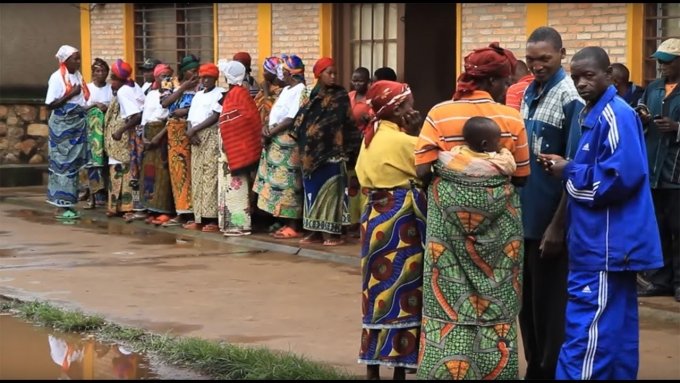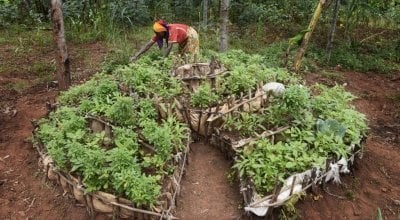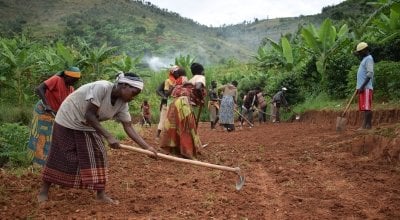
Knowledge Hub
A solution to extreme poverty? Graduation programmes pave the way
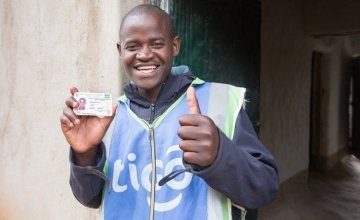
In our thought leadership series, Chris Pain, Concern’s Head of Technical Assistance, examines graduation programmes as a potential solution to extreme poverty and looks at where the model can go from here.
Of course, there is no ‘magic bullet’ when it comes to addressing extreme poverty but a small number of interventions are increasingly showing great promise. One of these is the graduation programme. The positive perception of this programme does not just come from NGO practitioners, but also in findings put forward by a number of academics and researchers after a rigorous review of about 500 interventions. The accompanying article in the highly influential ‘Science’ magazine highlights how graduation programmes create lasting progress for the extreme poor.
Concern Worldwide has been implementing graduation programmes for over 10 years. In their most basic form, they incorporate elements of direct cash transfers, enhanced access to financial services, a programme of training and mentoring and the transfer of an asset to help improve on livelihoods. However, as we have seen increased levels of income and asset holdings amongst our programme participants, we have also identified a number of questions that we need to answer as the graduation programmes evolve.
What’s missing in the measurements?
Results to date have often focused on the ‘easy’ to measure things such as income from a specific activity or level of asset holding (such as the number of goats a programme participant has). But with such a narrow focus, are we missing something? Some of the less tangible but no less important outcomes of the programme? Discussions with participants suggest they are now being invited to engage more in the social lives of their communities. They are more likely to join cooperatives or attend women’s meetings and other community activities. Importantly, they also have increased levels of self-confidence to attend those meetings. Quite often this is for the most basic of reasons, like having better clothing to wear or having the ability to make financial contributions to social events. Or it can relate to how they are viewed in their communities because they now have better housing or are better able to care for their children. Measuring these feelings of self-confidence, self-esteem, and social capital in a rigorous manner continues to provide a challenge for all of those involved in the field. So too does setting thresholds that reflect programme participants own perspectives before we can say a household has ‘graduated’. However, these should not be discarded in favour of more easily measured indicators, and Concern will continue to focus on identifying ways to achieve this with our research partners.
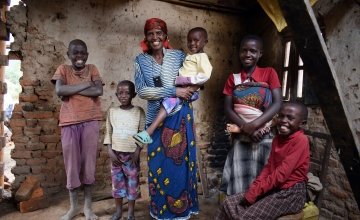
Does graduation work better with men or women?
Our first experience of implementing the programme (in Haiti) saw us target women only, while our subsequent interventions in Burundi and Rwanda, where we worked with both men and women, brought about equally successful, and quite similar results. This should be unsurprising, as historically the graduation programmes have not included specific interventions to change these intra household dynamics. Recently, Concern have tried to build this in to our work in Rwanda. This has prompted us to ask the question, can we have better results working with men or women? Or can we achieve more by working with all members of the household together and attempting to break down intra-household barriers, for example, by adopting our engaging men and boys approach? We intend to examine this aspect in detail over the next five years in our intervention in Malawi andwith our research partners in Trinity IMpact Evaluation Unit.
Is graduation expensive?
One of the most common criticisms of graduation programmes is that they are expensive. Our own experience shows that the total cost per beneficiary household over a two to three year period can range between €1,100 and €1,600 with up to 43% of that money being provided directly to the household in cash and other transfers. Without question, this is more expensive than a traditional livelihoods programme or emergency distribution. However, we need to take into account the scale of the benefits provided and the fact that most of them still exist up to three years after the programme has been completed. To look at it another way, for less than a price of a cup of coffee (€2.20) a day for two years, a household of five can be sustainably lifted out of extreme poverty. Our research has shown that it is the interaction of the five components of the programme that delivers on this outcome, rather than any one element being the major driver, and for that reason, we should not attempt to reduce or cut back any components.
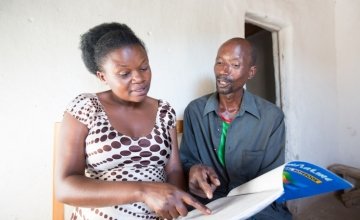
The Case Worker is still the X-Factor
All the research and evidence undertaken to date highlights the need to never underestimate the importance of dedicated, well-trained and professional staff in the delivery of the programme. It is increasingly apparent that the stronger the case worker, the more successful the programme will be. Historically we have referred to the role of the case worker as the X-factor that helps make the difference between the success or failure of the intervention. They play a huge role in terms of behaviour change and helping people to utilise their assets in the most suitable way. As we have learned, the delivery of monetary assistance on its own is often not enough to help lift people sustainably out of extreme poverty. The question remains not whether coaching and mentoring should be provided but how it should be provided in a way that does not overburden the case worker.
Graduation programmes are not social protection
Despite the success of graduation programmes to date, our findings from Haiti suggested that a number of years after the programme had ended, 30% of participants had continued to progress, 40% had maintained their asset holding at the same level, and 30% had slipped back somewhat. More rigorous but unpublished results from our Rwanda programme suggest a similar scenario. The question now is why do some households fail to progress? Reasons appear to include the number of adults in the household with labour capacity, the location of the household (reflecting access to markets and the ability to improve earnings), and whether the households had suffered a shock that they were unable to deal with (such as the death of a family member or a severe illness). While more research is needed to understand the trajectories of different households, one thing is clear – graduation programmes are not social protection instruments. On the contrary, they underline the need for proper government run systems of social protection available to all, to help people deal with and overcome shocks. If anything, participants in graduation programmes should be linked up with other social protection and basic social services upon completion.
A final word: Evidence is key
The general feeling is that graduation programmes have the potential to be scalable, though all opportunities to reduce costs need to be taken. Whether this is in the form of less frequent one-to-one household visits from case managers or examining more innovative ways of message delivery, such as through public information campaigns, or mobile phones. However, evidence is key to shaping progress. Any such changes must be made based on the evidence created and shared through global forums such as CGAP and the discussions generated through the Centre for Social Protection at the Institute of Development Studies.
About the author
Chris Pain is the Head of the Technical Assistance team in Concern’s Strategy, Advocacy and Learning department, and was heavily involved in the conceptualisation of the graduation programme in Burundi and Malawi




